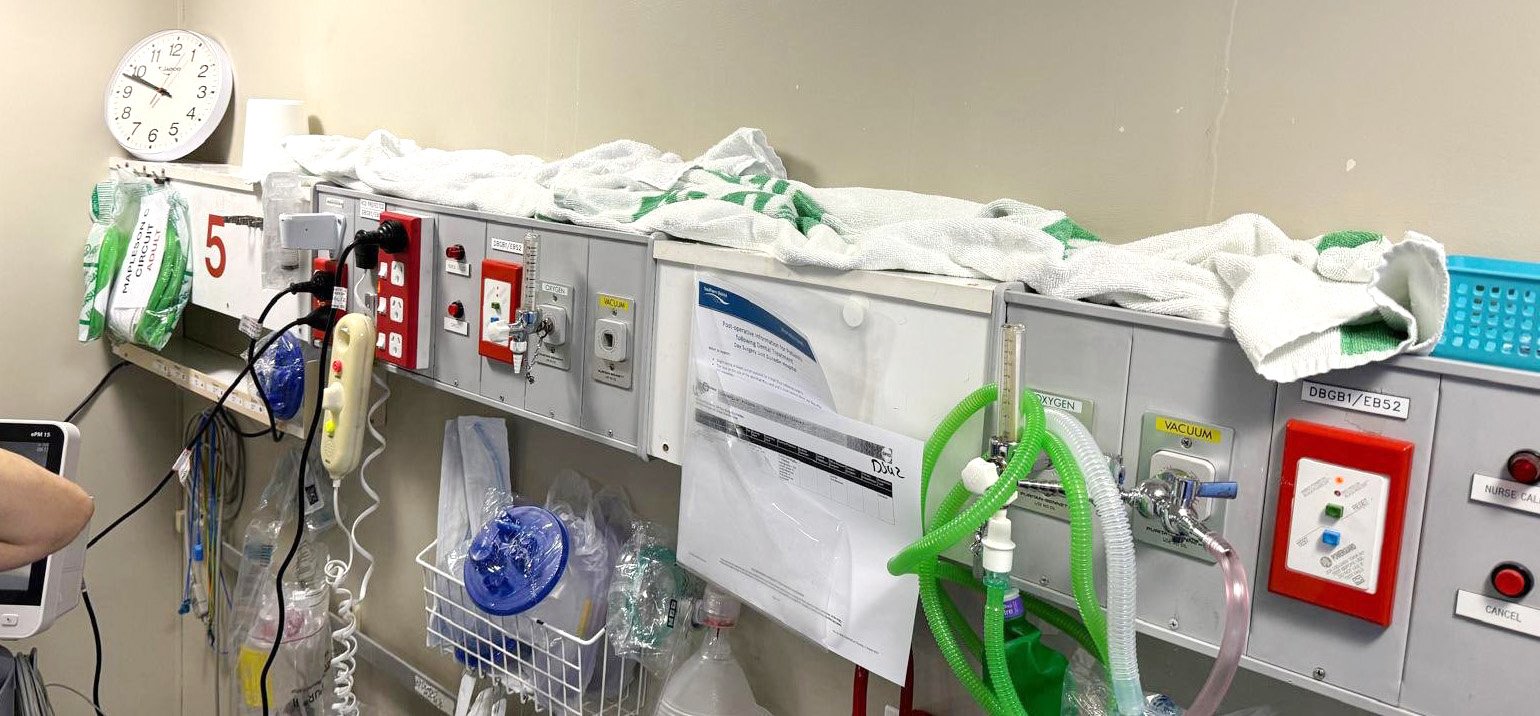

It occurred as the government looks at plans either to build the new Dunedin hospital in a scaled-down fashion, or retrofit the existing hospital.
Consultant anaesthetist Dr Claire Ireland said last week’s rain event led to issues with leaking that "seemed to happen every time it rained heavily".
"We had water in the recovery area, where I was working as day surgery, coursing down the walls into the recovery area where there’s a panel with the oxygen, the suction, the plug sockets for our equipment.
"So we had to sort of put towels down, call building and property, not use that part of the recovery area while people were recovering from their surgery and so on."
When she went back up to the main operating theatres later that day there were leaks in the corridors, which were not properly ventilated.
"So, for me, it’s not so much the one-in-a-hundred-year event, but the fact it’s been going on for years."
Dr Ireland was also reminded of cracks appearing in the ceiling and dirty brown water dripping through after a rain event about two years ago.
"It did not go into the surgical field but just to the side of the theatre bed where the staff were working. This is outrageously bad.
"We had to move the patient to another theatre during their operation. This was due to a failed end-of-life ventilation system in the roof."
Dr Ireland said the government’s proposals for the new Dunedin hospital project were "astounding, and frankly appalling".
"We’ve already been through a seven-year process of really detailed work, which has been under scrutiny and value management.
"It’s been checked by independent planners and clinicians all along the way.
"We’re still looking at several years to the delivery of that building; so to stop it now and reverse that and really look at some just unworkable solutions at this late stage in the project is a big risk for patients."
Dr Ireland said such was the state of Dunedin Hospital that attempting to retrofit it might lead to an inability to deliver care to patients who needed acute or specialist services all across the southern region.
"That’s because the building not only leaks, but it’s inadequate in terms of its size and it’s inadequate in my world in terms of the number and quality of the operating theatres that we have within this building."
A spokeswoman for the New Zealand Nurses’ Organisation echoed these concerns.
"It is not fit for purpose [and has] too few beds with too few health professionals and support staff to provide timely care," she said.
"We need a new hospital that will meet the needs of the region when we have the next pandemic, safely. Cost-cutting will put all at risk of harm."
Health New Zealand Te Waipounamu regional head of infrastructure Dr Rob Ojala acknowledged Dunedin Hospital was an ageing facility and with that came challenges with infrastructure.
"This includes containing leaks that can occur when we get significant rainfall.
"We have an ongoing programme of waterproofing works to manage this issue. This programme includes measures such as repairing leaks, resealing areas where required and repairing or replacing roofs."
"We are confident that through this work our services can be maintained — noting that several leaks were contained during last week’s significant rainfall event and these did not prevent us from delivering any services to the community."
The Otago Daily Times has asked for a breakdown of maintenance costs for plugging leaks in the hospital over the past three years.












